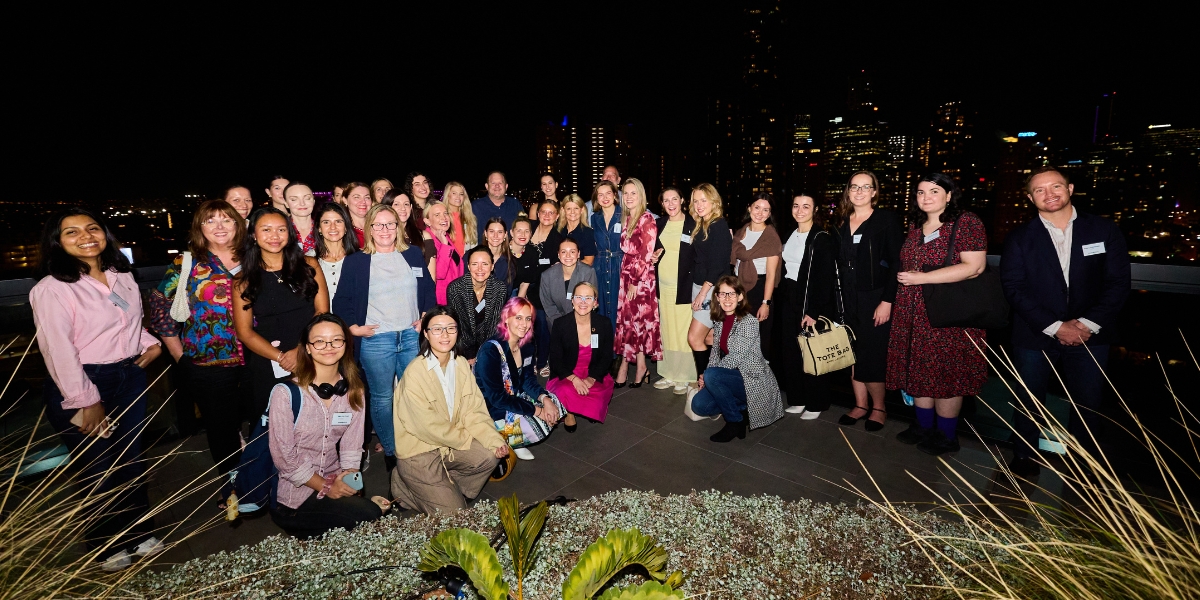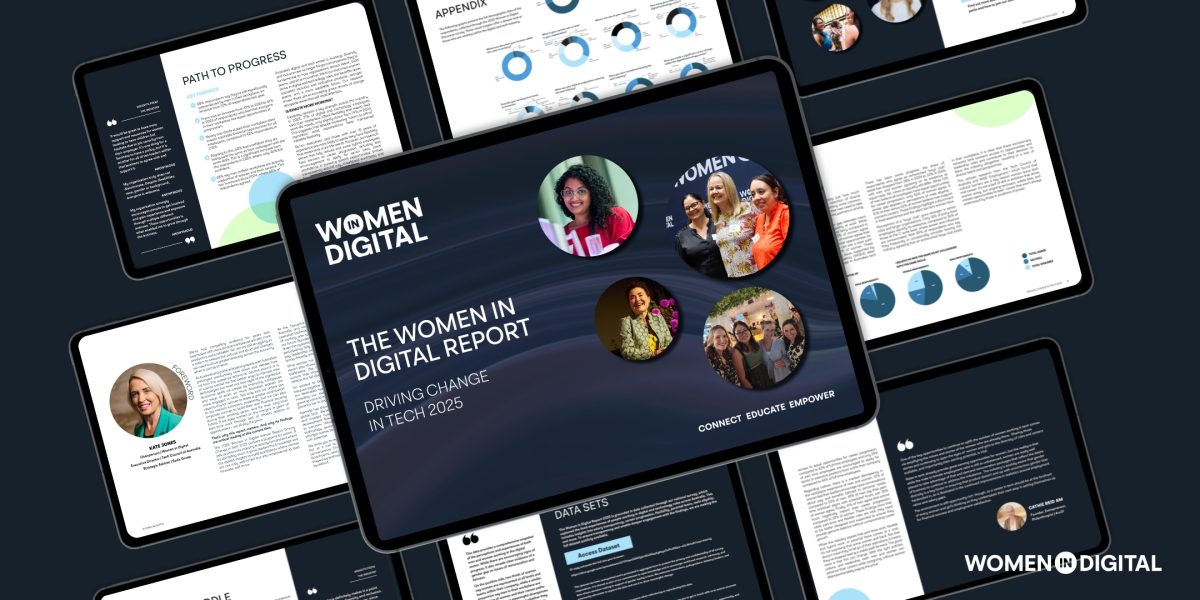Stepping into change: Are we really afraid of change, or are we just afraid of uncertainty?
As organisations across Australia navigate rapid shifts in technology, workforce capability and community expectations, what will 2026 look like across the digital and tech industry? It’s not just that transformation is accelerating; it’s that leaders are being forced to rethink long-held assumptions about how work gets done, how talent grows, and what people actually should be doing in a modern, AI-enabled environment.
In our recent online panel discussion, Lucy Poole, Carrie Mott and Elyse Philippi, moderated by Adelaide Haynes, explored how these forces are reshaping the way organisations design roles, develop skills, and build cultures of adaptability. Their insights painted a picture of a sector standing at a crossroads: move forward with curiosity, co-creation and experimentation – or fall back into outdated models that no longer serve the work or the people doing it.
Talent, pipelines and new workforce models
One of the key vantage points came from Lucy, who emphasised how the public service is rethinking talent pipelines. Lucy cited a shortfall of jobs across core government projects, provoking a call to reshape how talent is sourced, developed and deployed. Rather than simply filling roles in the old model, the focus is shifting to building digital literacy into various pathways (not just a single “IT job” lane), re-shaping existing workforce capability and diversifying talent pools.
The buzzwords she urged: ideation and experimentation, meaning that organisations need places where new ways of working can be trialled, not just deployed wholesale. On the people side, she stressed the importance of humility and a mindset that new tech and AI won’t be a plug-and-play “silver bullet”. Teams must be ready for change, not expect it to magically arrive and fix everything.
In short: The talent question is no longer “can we hire enough people?” but “can we design the pipelines, the pathways and the mindsets so that people are ready to engage with the future?”
From search to conversation
Carrie took us into how the nature of discovery, engagement and interaction is changing. The shift is away from “search” (in the old sense of typing keywords and sifting through ranked results) to conversation… interactive, dynamic, contextualised. She also emphasised co-creation as a key buzzword: rather than organisations dictating top-down what is needed, the future lies in working with people (users, teams, communities) in the design of solutions.
On the skills front, she highlighted the ability to interrogate information, in a world awash with data, AI-assisted answers and “surface” insights, the ability to ask good questions, challenge assumptions and dig deeper becomes critical.
Her message: The digital shift isn’t just about new tools. It’s about new forms of interaction and meaning-making, which means our design, our workforce, and our culture must evolve accordingly.
Asking a different question: What should humans never have had to do?
Elyse offered a provocative pivot: instead of asking “How do we keep people working harder?” she asked, “What should humans never have had to do?”
At this moment of “permission” for innovation, she said organisations are not simply managing capacity or asking people to work longer hours. Instead, they are free to ask: What tasks should we remove so human energy can be freed for more meaningful work?
Her buzzword: Outcome over Output, meaning that we focus less on “how much people do” and more on “what we achieve together”. On mindset, she stressed curiosity with a touch of humility, and treating failure as an opportunity to learn (rather than a setback to bury). When you free people from work that machines or automation should handle, what becomes possible? She invited us to imagine it.
This is a powerful reframing: not just “how do we do more” but “how do we do differently”.
Bringing it together: Themes, mindsets & moving forward
Across the contributions, some shared themes emerged:
- Mindset matters: Lucy emphasised humility and readiness; Elyse emphasised curiosity; Carrie emphasised interrogation of information. These are skills of the future alongside technical skills.
- Talent + pathways + experimentation: We are not simply hiring more of the same. We are redesigning how work gets done, who does it and with what skills.
- From output to outcome: The value shifts from doing more to doing better, and doing different.
- Co-creation & conversation: Engagement with stakeholders, end-users and teams becomes less about “here’s what we built for you” and more about “let’s build together”.
- Ideation & experimentation: Lucy’s call to build experimentation into the model means organisations must carve out space for trying, failing, learning, rather than only executing on fully formed projects.
- Facing uncertainty: If the fear is less about change per se than uncertainty, then the work becomes about building adaptive capacity, flexibility, and psychological safety.
Final Thoughts
We often say, “Change is inevitable.” But what this panel suggests is that what matters more is how we respond to it, and whether we use this moment to deliberately redesign our systems, our workforce and our mindsets — rather than simply reacting.
As Lucy, Carrie and Elyse all emphasised: the time is now for ideation, experimentation, redesigning talent pipelines, shifting to conversation-based engagement, and focusing on outcome over output. In doing so, organisations don’t just keep pace with change; they shape it.
Are you a WID member? Log in to the Member Portal to watch the full recording!









